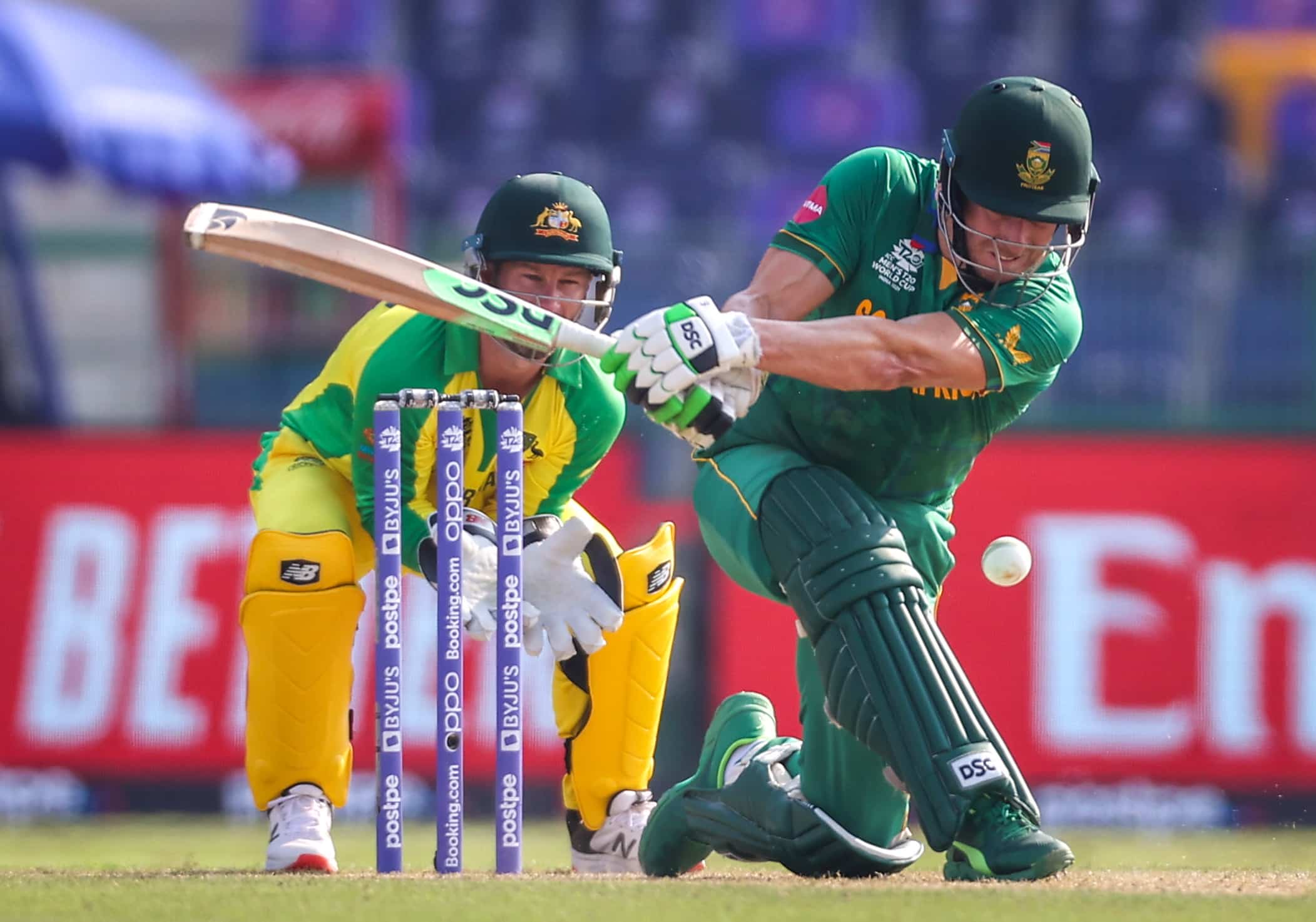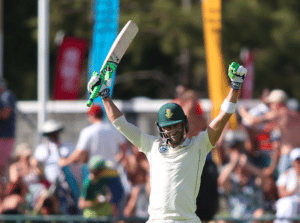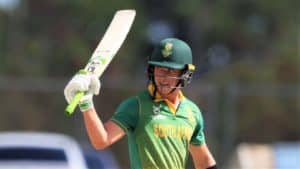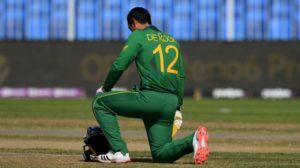The Proteas haven’t progressed significantly in T20 cricket in their time under the tutelage of Mark Boucher. Fundamental deficiencies were exposed in their defeat by Australia and change is needed, writes RYAN VREDE.
The degree of pain and disappointment you felt after the Proteas’ five-wicket defeat is directly linked to your level of expectation for this team.
Boucher’s friends in the media have been lying to the cricket public about just how poorly equipped he is to coach an international team of South Africa’s standing. As a result, there are millions of South Africans whose expectations have been raised ahead of a World Cup that they stand very little chance in.
Australia are an average side. They are laden with match-winners, certainly, but, evidenced by the hard work they made of chasing a modest target in Abu Dhabi, they are not a team one should consider as being among the format’s elite.
Indeed, the Proteas would have been quietly confident of beating them and should have felt justified in this posture. Instead, they now face a scenario where they will most likely have to beat England, the world’s top-ranked T20I side, as well as the West Indies and Sri Lanka, to progress to the semi-finals. This was after their chronic batting struggles surfaced again.
There was plenty of fighting talk in the buildup to the tournament. Every player put up for the media spoke about how clear their gameplans were and how adaptability was at the heart of those plans.
The media asked them about previous chokes at the tournament, like whether this side are fit to shine the ball of their predecessors, who had a legitimate chance of winning. The players obliged, explaining that the memories of those failures don’t haunt them. As if the ghost of World Cups past would bother with a team that has only realised a fraction of their potential.
I wrote recently that this side is a year and a coach away from being an elite T20 side. Under Boucher, the Proteas have won just 13 of 28 T20I matches. Three of those victories came against Ireland, who are ranked six places below them. Thirteen of those 28 matches have been played in South Africa.
This is not a record that reflects the talent at Boucher’s disposal. Barring a few exceptions for whom there are available and highly competent replacements, this is a deeply gifted side, one that could be further down their developmental path than they are now. That is directly linked to coaching. Boucher and his band of assistants and consultants just aren’t good enough, and their coaching record reflects that.
Compounding their tactical and technical woes is the fact that the side has no identity. They are neither ‘brave’, that haunting attribution from days gone by, nor are they tactically pragmatic. They seem to be somewhere in between. It is an ugly hybrid of instinct and natural talent that drives decision-making. These are two critical components of success, but the ability to still the mind under pressure so that your execution comes correct is the third, and sadly missing component. This, too, is a coaching issue.
Skipper Temba Bavuma said of his team’s dismal total of 118 all out in their opener: “A score of 150, 160 would have been competitive.” Effectively, they were 32 to 42 runs short of a par score, according to Bavuma. That is an innings from one batter, maybe shared among two. The game’s elite sides find these runs. It is not a reach to suggest that a better-coached Proteas side finds these runs, too.
The bowling unit is among the world’s best, evidenced by them taking the game deep despite their batters’ mediocrity. The building blocks are there for a truly excellent T20 unit. But that potential won’t bloom under Boucher and his coaching staff.
Instead, qualification for the semi-final should be considered a massive overachievement. They will do well just to finish third in their pool.
To settle for that, given the team’s obvious potential, is heartbreaking.
ALSO READ: Proteas player ratings
Photo: EPA/David Gray/BackpagePix





